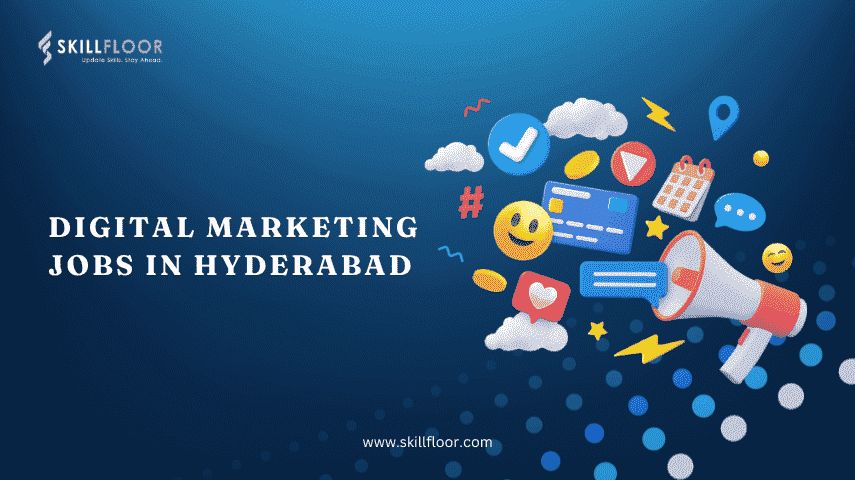The Role of Chatbots and AI in Modern Digital Marketing
Explore the pivotal role of chatbots and AI in contemporary digital marketing. Learn how these technologies enhance customer engagement and streamline marketing efforts.

In today's ever-evolving landscape of modern digital marketing, the dynamic synergy between chatbots and artificial intelligence (AI) is fundamentally redefining the way businesses engage with their audience. Chatbots, harnessed by the power of AI, have become indispensable tools, revolutionizing customer interactions and reshaping marketing strategies in the digital age. Let's delve deeper into how they enable real-time personalization, streamline communication, and ultimately drive success in the ever-evolving world of digital marketing.
Chatbots and AI
Chatbots, the abbreviated form of "chat robots," represent computer programs designed to simulate human conversation, primarily through text or voice-based communication channels. They harness the capabilities of artificial intelligence (AI) technologies, including natural language processing (NLP) and machine learning, to comprehend and respond to user input, effectively mimicking human conversation. Chatbots come in various forms, ranging from simple rule-based systems to advanced AI-driven models that continually adapt and learn from interactions, providing personalized and context-aware responses.
Significance in Modern Digital Marketing:
The role of chatbots and AI in modern digital marketing is pivotal and multifaceted. They enable businesses to offer seamless, round-the-clock customer interactions, which are invaluable in today's competitive landscape. By streamlining communication, they provide instant support, answer queries, and guide users through transactions, enhancing overall user experiences. This responsiveness not only boosts customer satisfaction but also drives increased conversions and fosters brand loyalty.
Let's explore the key ways in which chatbots and AI contribute to the success of modern digital marketing:
-
24/7 Customer Support: Chatbots empower businesses to provide immediate, round-the-clock customer support and assistance. This level of responsiveness enhances customer satisfaction and builds trust, as consumers can get their queries resolved promptly.
-
Efficiency and Cost Savings: Automation through chatbots streamlines routine tasks, ensuring that businesses are always available to interact with potential customers. This efficiency not only saves time but also reduces operational costs.
-
Personalization: AI-driven chatbots offer personalized interactions by analyzing user data and behavior. This personalization allows businesses to tailor their marketing efforts, delivering relevant content, product recommendations, and solutions. These customized interactions increase user engagement and boost conversion rates.
Automation and Personalization: The Driving Forces
Automation and personalization are the twin pillars of modern digital marketing, and technologies like chatbots and AI are at the forefront of these efforts. Here's how automation and personalization contribute to the success of digital marketing:
-
Automation: Technologies like chatbots streamline routine tasks, ensuring 24/7 availability and rapid responses, thus enhancing efficiency and customer satisfaction. This automation saves time and fosters stronger customer relationships, ultimately driving higher conversion rates.
-
Personalization: AI-powered chatbots leverage data analytics to understand individual preferences and behaviors. By analyzing user data, these chatbots can deliver highly relevant content, recommendations, and solutions. This level of customization creates more meaningful and engaging interactions with customers, saving time and fostering stronger customer relationships. Ultimately, the combination of automation and personalization drives higher conversion rates and propels the success of modern digital marketing strategies.
Understanding Chatbots: Basics and Functionality
Chatbots, as mentioned earlier, simulate human conversations, offering real-time interactions. They typically fall into two categories: rule-based and AI-powered.
-
Rule-Based Chatbots: These chatbots follow predefined sets of rules and instructions. They are suitable for handling relatively simple, static, and rule-driven interactions. Rule-based chatbots provide straightforward responses based on programmed decision paths.
-
AI-Powered Chatbots: In contrast, AI-powered chatbots leverage complex algorithms to analyze and interpret user inputs. This allows them to offer more nuanced, contextually relevant, and flexible responses. AI-driven chatbots have the capability to understand the context, intent, and nuances of user interactions, making them adaptable and capable of continuous improvement over time.
Both types of chatbots play significant roles in various industries, from customer support to e-commerce, providing efficient and user-friendly interactions. Rule-based chatbots excel in straightforward tasks, while AI-powered chatbots shine in handling more complex and dynamic conversations, particularly where understanding context and providing personalized responses are essential.
AI's Contribution to Digital Marketing
AI represents a game-changer in the realm of digital marketing. It analyzes vast data sets to gain deeper insights into customer behavior, fueling personalized marketing strategies. Predictive analytics enables marketers to anticipate trends, enhancing efficiency and customer experiences. AI-driven marketing campaigns leverage chatbots to collect data, offer personalized recommendations, and optimize content, achieving heightened customer engagement and conversions.
Challenges and Considerations
Integrating chatbots and AI into digital marketing presents its set of challenges and considerations:
Balancing Automation and Authenticity: Striking the right balance between automation and the human touch is crucial for authentic interactions. Maintaining a genuine, empathetic, and human-like connection with users while leveraging automation is essential to provide a positive user experience.
Handling Complex Queries: Chatbots need to be equipped to handle a diverse array of user inquiries, even those that deviate from predefined paths. Building and training chatbots to understand context, nuances, and user intent is essential to avoid frustrating users and potentially damaging brand reputation.
Data Privacy and Security: Data privacy and security concerns come to the forefront when collecting and utilizing user data for personalized interactions. It's imperative to handle personal data transparently and ethically, with stringent measures in place to protect sensitive information. Ensuring that AI systems adhere to legal regulations and user preferences is vital to maintain trust and compliance.
Ongoing Maintenance and Updates: As chatbots and AI become more integrated into marketing strategies, businesses must be prepared to invest in ongoing maintenance and updates. Technology evolves rapidly, and neglecting to keep chatbots up-to-date could result in outdated and ineffective customer interactions.
Future Directions in Chatbots and AI for Digital Marketing
The future of chatbots and AI in digital marketing holds exciting developments and possibilities. Here are some anticipated trends and advancements:
- Advancements in Natural Language Processing (NLP): NLP will continue to enhance chatbots' ability to engage in more nuanced and context-aware conversations, improving user experiences.
- Integration with Voice Assistants: Chatbots will seamlessly integrate with voice assistants like Alexa and Google Assistant, expanding their reach and accessibility.
- Hyper-Personalization: Chatbots will leverage AI to deliver even more tailored experiences, resonating with individual users' preferences and behaviors.
- Predictive Analytics: AI-driven chatbots will become more adept at predicting customer behavior and trends, empowering marketers to make informed decisions.
- Multi-Platform Proliferation: Chatbots will continue to proliferate across various digital platforms, ensuring consistent interactions across channels.
- E-commerce Enhancement: Chatbots will play a pivotal role in simplifying and enhancing the e-commerce experience, driving sales through conversational interactions.
- Voice Search Optimization: AI will assist in optimizing content for voice search, considering the conversational nature of voice queries.
- Real-time Insights: Chatbots will provide real-time insights into customer behavior, enabling agile adjustments to marketing strategies.
- Ethical Considerations: Ethical considerations will remain critical, with businesses prioritizing transparency, data privacy, and responsible AI usage.
- Green Marketing Support: Chatbots will support green marketing efforts by providing information on eco-friendly products and sustainable practices.
Ethical Considerations in AI-Powered Digital Marketing
In the realm of AI-powered digital marketing, ethical considerations take center stage. Ensuring responsible and ethical practices is not only a moral imperative but also crucial for maintaining trust with consumers. Several key ethical considerations include transparency, algorithmic bias, user data privacy, and the delicate balance between automation and maintaining the human touch.
Transparency is fundamental in AI-powered digital marketing. Users should be informed when they are interacting with a chatbot or AI-driven system, not a human agent. Clear disclosure helps establish trust and ensures that users understand the nature of their interactions.
Addressing algorithmic bias is another critical ethical concern. AI systems can unintentionally perpetuate biases present in their training data, leading to unfair or discriminatory outcomes. Marketers must actively work to identify and eliminate biases, striving for equitable and unbiased engagement with all users.
User data privacy and security are paramount ethical considerations. Businesses must handle personal data transparently and responsibly, adhering to stringent data protection regulations such as GDPR or CCPA. Robust measures should be in place to safeguard sensitive information, and user consent should be sought and respected when collecting and utilizing data.
Balancing automation with the human touch is an ethical challenge in AI-powered marketing. While automation enhances efficiency, maintaining authentic, empathetic, and human-like interactions is essential for providing users with a positive experience. Striking the right balance ensures that technology augments, rather than replaces, the human connection, fostering trust and satisfaction.
Chatbots and AI have become integral components of modern digital marketing strategies. Their ability to automate tasks, personalize interactions, and provide real-time support positions them as invaluable assets for businesses looking to thrive in the digital age. However, businesses must navigate the challenges and ethical considerations that come with their integration, ensuring that AI-powered marketing practices are responsible, transparent, and user-centric. As AI continues to evolve, its potential to transform customer interactions and drive business growth will only expand, promising an exciting future for digital marketing.




























































